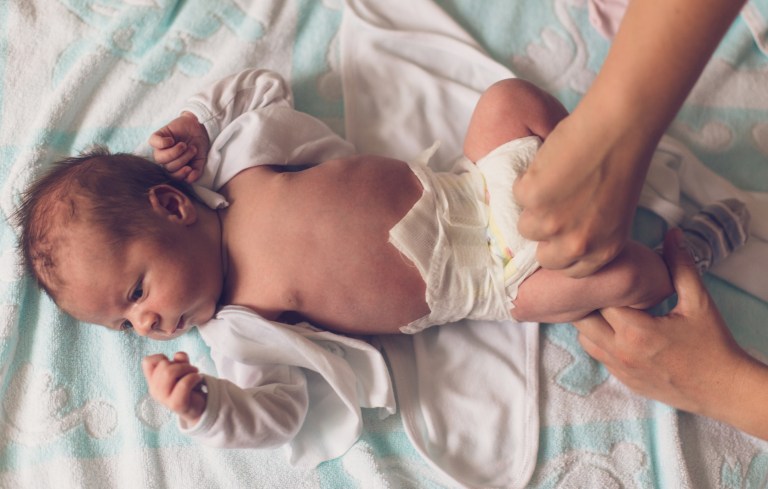If there is one thing all parents can agree on, it’s that babies go through a lot of diapers. Newborns will have 8-10 wet diapers per day and breastfed babies will have a poop with just about every feeding. Seriously, that’s a lot of diapers. But what happens when pee, poop, wipes and diapers all interact with baby’s skin? This is definitely a set up for rashes. For some picture examples of rashes, click this link. Keep in mind that anytime a dermatology photo ends up on the internet it is likely either very unusual or a “worst case scenario” situation.
What causes diaper rash?
Babies naturally have sensitive skin. They react more easily to substances that contact the skin, including those that come from their own body. Here are some of the typical issues we will see.
- Irritation from exposure to substances in wipes and diapers. Irritation can also occur from exposure to soaps and creams.
- Irritation from exposure to urine and stool. For example, babies with diarrhea are more prone to diaper rash. Also, babies eating a lot of acidic foods can get diaper rash, but this is not a food allergy.
- Yeast growth, known as candida (C. albicans). This happens because the diaper area is a warm and moist environment that is conducive to yeast growth. You may see the rash more commonly in the creases because of the environment there. Babies also have an emerging flora (normal bacteria that lives in/on the body) which when fully developed keeps candida under control.
- Bacterial infections can occur when too much irritation causes the skin to breakdown.
- Antibiotic use can cause overgrowth of candida because it kills of the normal flora in the body while fighting the infection it is treating. Even a breastfeeding baby whose mom is taking antibiotics can experience a yeast rash.
- Eczema can flare up in the diaper, especially if the baby is irritated by substances in contact with the skin.
- Friction from diapers that are too tight.
How do you treat diaper rash?
The best treatment is prevention. A good rule for parents is to change baby’s diaper often, as soon as baby pees or poops. Don’t rub too hard while cleaning the skin and try to use a warm washcloth with water instead of wipes. Make sure the area is completely dry before putting on a new diaper and if needed, keep a barrier like Vaseline, Aquaphor or A&D on the skin. Sometimes, however, it is necessary to use other treatments or even medication for a bad diaper rash.
- Irritation can be prevented by the above, but at some point everyone notices redness of the skin in the diaper area. Any diaper cream with zinc will be helpful, although I usually recommend those without fragrance. I also like to add cornstarch for babies who are experiencing diarrhea as it will absorb excess fluid. Some diaper creams have cornstarch in them for ease of use.
- Red rashes that look thick and have red bumps surrounding the area, known as satellite papules, can be candida so an anti-fungal cream may be necessary. If you are considering this, please see your pediatrician.
- If your baby has diarrhea and you see open areas of the skin, applying anti-bacterial ointment to the open skin can help. Then cover with your regular diaper cream. Of course if the lesions are ulcerated or oozing, seek medical care.
- Babies with eczema can have eczema in the diaper area too. Keeping the area clean, moisturized and protected with ointments like those listed above can be helpful. While steroids work well for eczema on other parts of the skin, you have to use them very sparingly in the diaper area. The occlusion of the diaper will increase absorption of the medication into the skin and the body. Only use 1% hydrocortisone in a thin layer 1-2 times per day as directed by your pediatrician.
While diaper rash is annoying to deal with, it is very common. Sometimes a rash refractory to treatment can be something less common so always have your baby seen if you have any questions. If you see any unusual rashes, the rash is spreading or there are blisters or ulceration of the skin, see your pediatrician. Finally, if your baby has a bad diaper rash and is also acting unwell or has a fever, see your pediatrician immediately.



